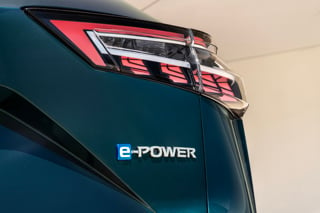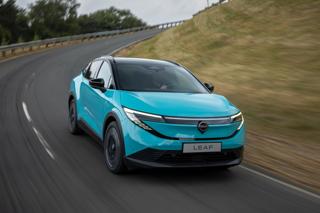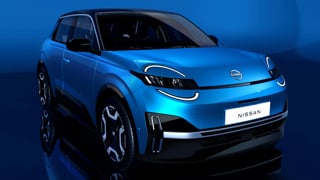Nissan has been winning plaudits in recent years, leading the way with Leaf, creating a sales success with the Qashqai and winning business with commercial fleets thanks to the NV200.
The award-winning Qashqai has become a fleet favourite and a regular fixture in the list of top 10 selling cars in the UK.
Only Ford’s Fiesta and Focus, Vauxhall’s Corsa and Astra and the Volkswagen Golf have proved more popular this year and with emissions starting from 119g/km, it will continue to be a firm favourite with fleets.
It’s helped the manufacturer build on its sales success.
Fleet sales are up 10.7% year-to-date at 30,521 units, giving it a 5% market share, up from 4.5% for the same period in 2011.
Nissan’s share of true fleet is slightly lower at 3.9% (10,562 units). Nevertheless, this is up 30% (2,414 units) on the same period last year when Nissan had a true fleet share of 2.9%.
Motability sales have remained fairly static year-on-year, but the manufacturer has become very active in daily rental.
In the first six months of 2011, Nissan had only allocated 33 units to daily rental.
A year later and that had jumped to 1,185 units during the same period.
However, Nissan is keen to stress that it has no intention of putting residual values at risk as the move is intended to provide much-needed stock for its recently-launched Cared4 used car programme.
This was rolled out to all Nissan dealerships in the spring and has been designed to give used car customers the same experience as buying new.
It remains to be seen if this careful management protects Nissan’s RV position, but away from its success with new car registrations, its LCV proposition is also going from strength to strength.
Nissan reported a 74% increase in LCV sales in 2011 compared with 2010, making it the UK’s best-performing LCV manufacturer brand.
It sold 10,854 commercial vehicles, which equates to a 4.2% share of the total LCV market, and achieved 6,223 sales and a 2.8% market share in 2010.
In the first seven months of 2012, it’s reporting 6,242 new registrations, up 14.7% on the same period last year, and a market share of 4.5%.
A focus on four key areas has helped achieve sales success in the LCV market for Nissan.
Firstly it has put a lot of effort and focus on implementing and developing its business centre programme.
The objective is to support dealers in delivering an improved level of service and expertise to commercial vehicle operators.
Secondly it has expanded and broadened its product offering, entering segments for the first time such as the car-derived van with NV200 and preparing the ground for its all-new 100% electric product based on NV200.
It has also overhauled all marketing and communications plans and strengthened its fleet presence by ensuring it has the right people, who can understand the needs of commercial vehicle fleets.
Fleet News: You have been increasing overall fleet sales and true fleet sales this year. What is behind this improving picture?
James Douglas: It’s down to a combination of natural product demand and programmes that understand the needs of, and cater to, business-to-business customers.
We recognise that they require support mechanisms through the life of the vehicle that minimise risk and cost while providing a service level that is market leading.
We have products that have clear USPs and a brand that is built on innovation and excitement; put that with some basic business customer empathy and we have built a proposition that customers find compelling.
FN: Figures reveal that as of the end of June more vehicles have been allocated to daily rental – up by 3,491% compared to the same period in 2010. Should the industry be concerned about your growing presence in short-cycle business?
JD: Nissan spent two years building a used car programme called Cared4 that our entire network took live in January this year.
The scale and reach of this programme has allowed us to re-start Nissan’s rental programme.
I think that any manufacturer programme that generates used vehicles less than two years old has an obligation to all its customers to ensure they have control of those vehicles’ disposal and effect on RV.
FN: How are sales of the Nissan Leaf progressing and how important are continued government incentives in this area?
JD: From the SMMT sales figures we can see that Leaf is commanding circa 60% of the electric car market, so from that standpoint we are very satisfied. However, the market is still very young and growing all the time.
Nissan has invested many millions of pounds building a new battery plant in Sunderland; in addition, all of our dealers will be EV accredited by the end of this year.
We have installed fast chargers in all the EV dealers and have agreed the installation of fast chargers with other partners which will rapidly increase the usability of EVs.
Government incentives are crucial in this area to speed up the adoption of EVs.
FN: You have achieved huge success in the commercial vehicle market. What’s behind this sales success and how do you expect to continue it?
JD: In a word – NV200. The growth of our small van has exceeded our expectations and while Navara, Primastar, Cabstar and our new NV400 are all strong, it’s NV200 that has driven the large volume.
I believe that our dealer network has to take a great deal of credit as well.
Almost half of our dealer network are now Business Centres and this year we are introducing an upper tier called Business Centre Plus that will see 25 to 30 accredited dealers offering even higher levels of service to our business customers.
LCV users recognise that level of commitment to customer care and have acted with their cheque-books.
FN: How much damage do fluctuations in the pound-euro exchange rate cause Nissan?
JD: We are fairly unusual in that we build such a huge number of vehicles here in UK, more than 480,000 last year.
This insulates us to a degree from the large fluctuations that other manufacturers who do not build cars in UK suffer as the exchange rate moves up or down.
Nissan can look forward to another successful year in fleet, although it remains to be seen whether its EV offering will see a substantial growth in volume.
In the UK, it believes incentives are crucial to the wider uptake of the technology, which is being seen elsewhere in Europe.
For example, Nissan in Norway sold 1,000 Nissan Leafs in just six months, taking almost 2% of the total car market.
The country has the highest level of support in Europe for electric vehicle purchases with zero VAT, no new car tax, free parking, exemption from some tolls and the use of bus lanes in Oslo.
The UK may not offer such a long list of incentives, but Nissan remains satisfied with its EV offering and how it has established itself with a portfolio of other product which continues to attract the interest of fleets.
























Login to comment
Comments
No comments have been made yet.